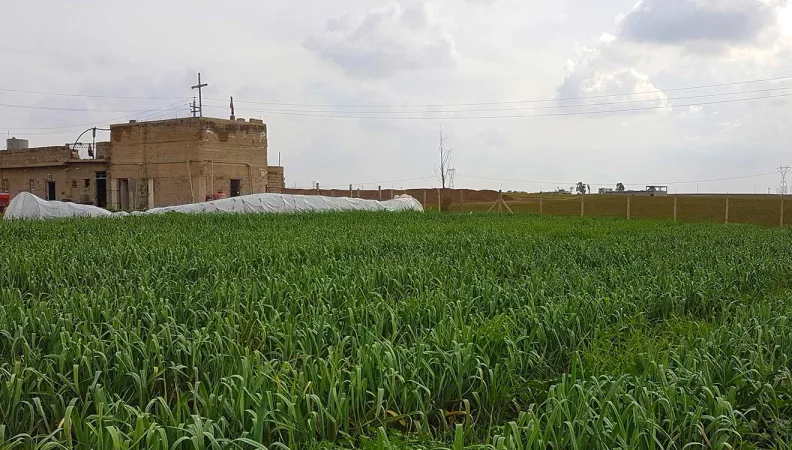Share the page
Promoting Economic Revival for Microbusiness and Agriculture (PERMA) in Nineveh Governorate
Project


-
Project start date
-
Status
Ongoing
-
Project duration
-
3 years
-
AFD financing amount
-
€ 10 000 000
-
Country and region
-
Location
-
Nineveh Governorate
-
Type of financing
-
Beneficiaries
-
Mercy Corps
The PERMA projects supports the restarting of rural and agricultural activities and, on the Nineveh Plain, the relocation of microenterprises and SMEs via the rehabilitation of water infrastructure and capacity building for partner financial institutions and the decentralized technical services of the Iraqi State.
Context
Following the occupation of the Islamic State, agricultural infrastructure and irrigation networks were destroyed, land was partially mined, inputs and equipment were stolen, orchards destroyed and livestock decimated. Despite many constraints that hinder the agricultural recovery, it benefits from key opportunities in Nineveh Governorate, and particularly in Al-Hamdaniya District. Poultry farming, fruit and vegetable production and, in general terms, activities to diversify agricultural production are dynamic sectors. The economic recovery is also an opportunity to renew the economic and commercial ties that existed before July 2014 between the various communities and urban centers, first and foremost Mosul and Erbil.
Description
The overall objective of the project is to contribute to the revitalization of the agricultural and rural economy in Nineveh Governorate. It breaks down into three specific objectives on which the project components are based:
- Facilitate access to finance for microenterprises and SMEs – particularly agricultural microenterprises and SMEs – in rural areas and secondary urban centers in the Al-Hamdaniya District of Nineveh Governorate so that they can restart their activities;
- Contribute to the rehabilitation of irrigated areas where mines have been cleared and other collective public infrastructure which has a structuring impact on agricultural sectors;
- Strengthen social cohesion by increasing intracommunity and intercommunity economic interactions.
Impacts
The project will have a positive impact on the relocation of microenterprises and SMEs and on the dynamism of trade on the Nineveh Plain. The beneficiaries will be selected to ensure that the various communities living in Al-Hamdaniya District are equally taken into account. The social cohesion actions will contribute to strengthening the collective ability to prevent and manage conflicts.
The project provides for substantial capacity building work for partner financial institutions.
The project also plans to build the capacities of the decentralized technical services of the Iraqi State and rehabilitate infrastructure which will, at local level, have a structuring and sustainable impact on the economy.


